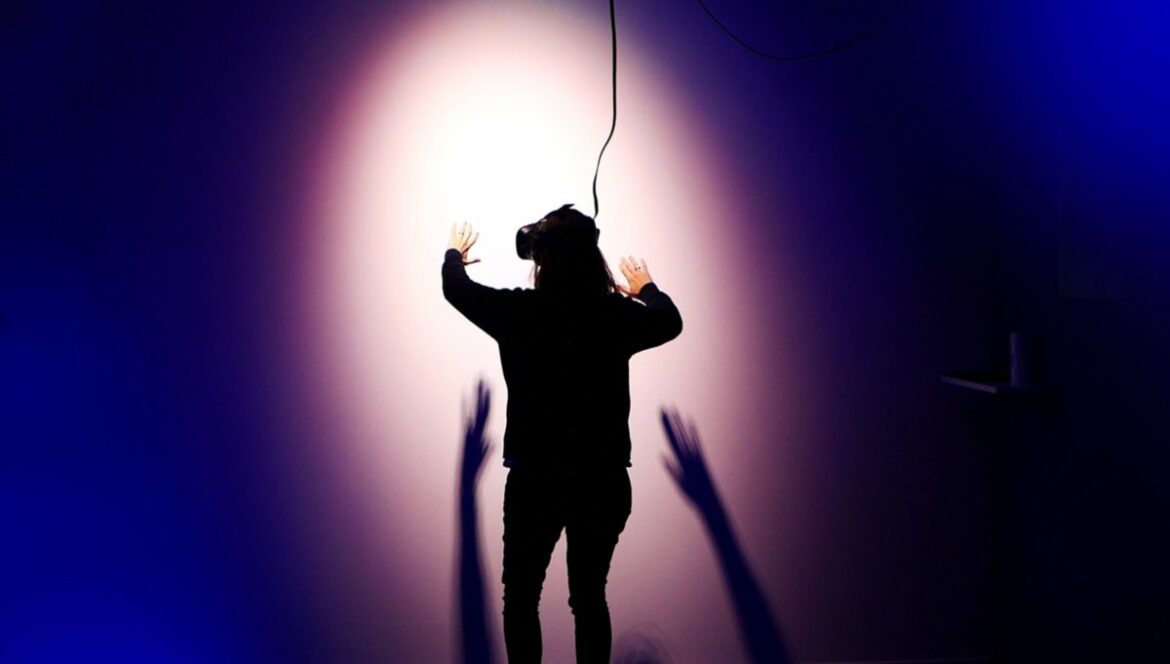
This week at SimulATE, the first-ever event examining the intersection between food and beverage and Web3, The Spoon hosted a panel on the future of work in the metaverse.
To look at how our jobs may change in a Web3-powered world, we welcomed Amogha Srirangarajan, the CEO of delivery robot startup called Carbon Origins, and Barry Herbst, a VP and executive recruiting firm The Elliott Group.
Below are four ways our panelists saw work changing as we enter the era of the metaverse:
The Metaverse Will Become A Way to Do All Forms of Work
Srirangarajan, whose company Carbon Origins hires virtual reality experts to operate their sidewalk robots, said in the long term, the work-from-anywhere nature of the metaverse would open doors for workers who have previously been shut out of the labor market.
“You’re going to have jobs that anybody can do in the metaverse.” said Srirangarajan. “The jobs that we’re creating are from all walks of life are moms and dads, as they’re called students, people with disabilities, people from all around the world. They can choose what time they work, how long they work with who they work, and what type of jobs that they work on.”
Web3 Jobs Will Be Community Driven
According to Herbst, jobs in Web3 will be centered around communities.
“Web2 is all about profit, while Web3 is all about that community,” said Herbst. “Brands coming into this space are going to add value to their consumers in a whole different way, connecting with their consumers, their customers, their patrons.”
Srirangarajan agreed that community is essential and sees the metaverse as a great place to find enthusiastic new talent.
“This is how we found every single one of our Skipsters,” said Srirangarajan, referring to the term the company uses for their remote VR robot operators. “The technology’s there now to support large groups of people coming into this virtual world with affordable hardware, and hanging out and building communities.”
The Metaverse as The New Job Training Ground
According to both panelists, the metaverse will be used to teach us new skills we will need for our jobs.
“Training is why we started using VR at Carbon Origins,” said Srirangarajan. “Training is going to be a big application early on. Training for all sorts of industries, starting with the service industry.”
“I foresee a lot of continued training and development not only in the real world but also with the headset, which will save companies a lot of money,” said Herbst. “Having that experience, whether it’s learning how to clean or cook, or even going on a date, having that shopping experience, eating a meal in the metaverse. Humans are social animals, and while we thrive on having that connection with people whether it’s face to face, it’s also fun having just as we’re doing now.”
Meet The Chief Virtual Officer
According to Herbst, Web3 will push brands to create a new executive job role, the Chief Virtual Officer (CVO), and one of the skills required by the CVO is that of digital real estate manager.
“The chief virtual officer will have to be very fluent first in digital land,” said Herbst. “What are the best in class metaverses to buy digital land?”
Another necessary CVO skill will be an understanding of digital security and the ability to fortify a brand’s metaverse presence.
“How do you secure those assets safely? How do you handle a hardware wallet to ensure that you’re not going to get hacked, or have your assets stolen or fished?”
And finally, the CVO will also be the chief Web3 community officer.
“Managing that community and paying it forward is going to be a really large focus for this chief virtual officer,” said Herbst. “At the end of the day, it’s all about relationships and keeping that community intact.”
You can watch the video from the panel, Jobs in a Web3-Powered Food Industry, moderated by The Spoon’s Ashley Daigneault, below.

